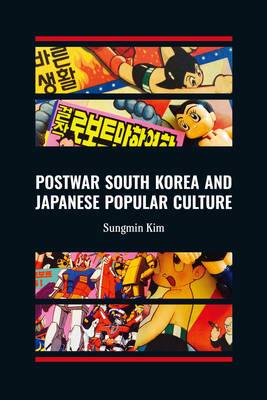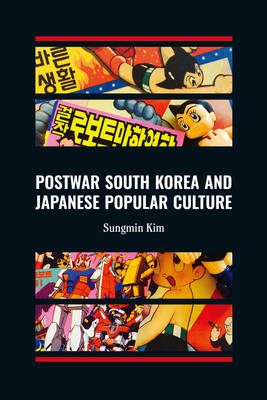
Bedankt voor het vertrouwen het afgelopen jaar! Om jou te bedanken bieden we GRATIS verzending (in België) aan op alles gedurende de hele maand januari.
- Afhalen na 1 uur in een winkel met voorraad
- In januari gratis thuislevering in België
- Ruim aanbod met 7 miljoen producten
Bedankt voor het vertrouwen het afgelopen jaar! Om jou te bedanken bieden we GRATIS verzending (in België) aan op alles gedurende de hele maand januari.
- Afhalen na 1 uur in een winkel met voorraad
- In januari gratis thuislevering in België
- Ruim aanbod met 7 miljoen producten
Zoeken
€ 103,95
+ 207 punten
Uitvoering
Omschrijving
After World War II, Japanese popular culture was "banned" in Korea. However, despite the official ban, Japanese popular culture was introduced and circulated through hidden or unofficial channels. In fact, the author, born in Seoul in 1976, grew up watching the animated TV series Astro Boy with its theme song in Korean. He recalls that it was not until the 1990s that he learned that Astro Boy was produced in Japan. Why was Japanese popular culture banned? How did Japanese popular culture spread in Korea despite the ban and the changing political situation? This book analyzes the history of how Japanese culture has been accepted into Korean society, citing numerous animated and visual works as examples. Japan-Korea relations have undergone dramatic changes, and although Japan and Korea are increasingly linked in terms of politics, economics, and cultural production, the relationship remains fragile due to the colonial history of the two countries. This book is a unique attempt to rethink postwar Japan-Korea relations from the perspective of transnational cultural space.
Specificaties
Betrokkenen
- Auteur(s):
- Uitgeverij:
Inhoud
- Aantal bladzijden:
- 212
- Taal:
- Engels
- Reeks:
Eigenschappen
- Productcode (EAN):
- 9781876843748
- Verschijningsdatum:
- 20/06/2023
- Uitvoering:
- Hardcover
- Formaat:
- Genaaid
- Afmetingen:
- 152 mm x 229 mm
- Gewicht:
- 453 g

Alleen bij Standaard Boekhandel
+ 207 punten op je klantenkaart van Standaard Boekhandel
Beoordelingen
We publiceren alleen reviews die voldoen aan de voorwaarden voor reviews. Bekijk onze voorwaarden voor reviews.









